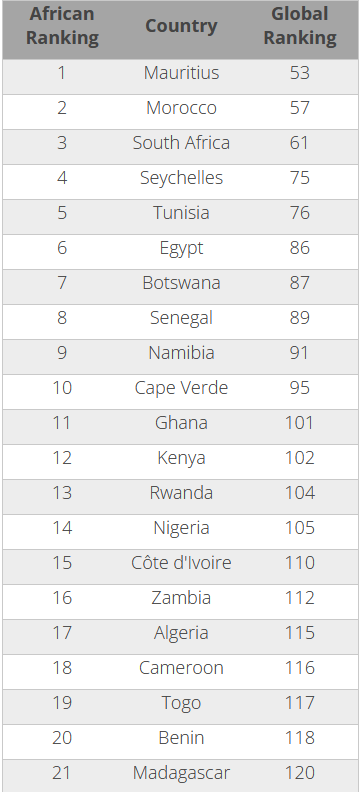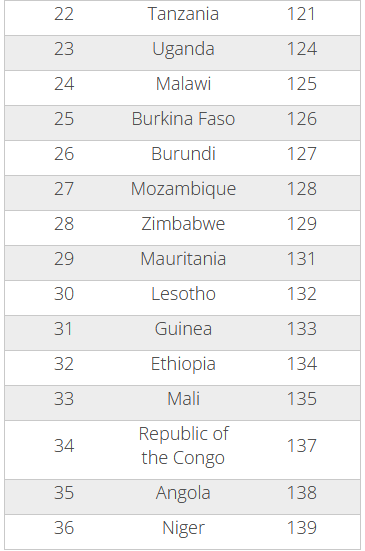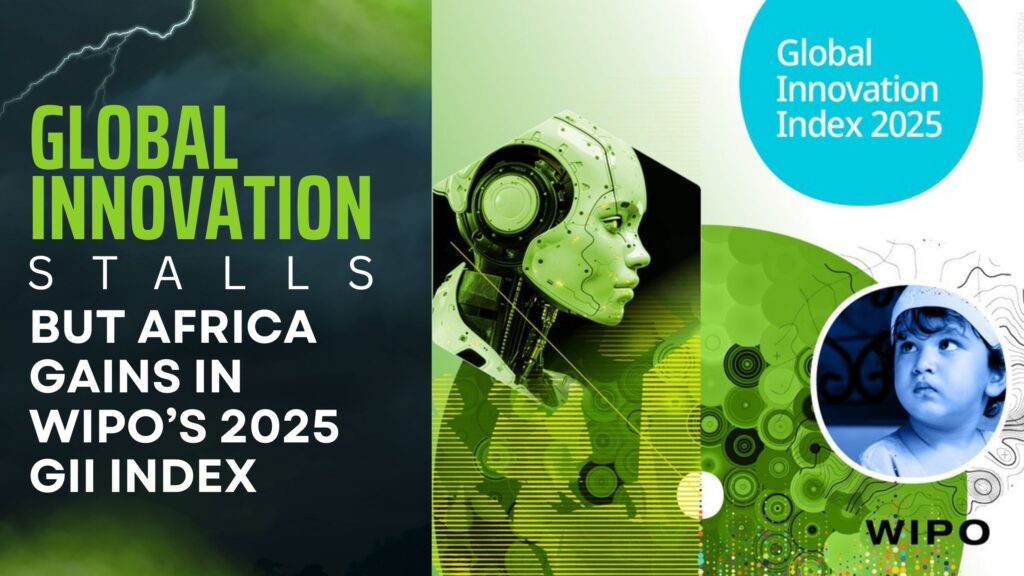Africa as a whole is advancing in innovation, thanks in large part to bolstered institutional capacity, the strengthening of business ecosystems, and a rise in entrepreneurial activity. This year, 12 of the 36 countries on the continent that were surveyed saw an improvement in their ranking compared to the previous year.
Mauritius maintained its position as Africa’s most innovative country in 2025, according to a report published Tuesday by the World Intellectual Property Organization (WIPO) in collaboration with Cornell University and the INSEAD business school.
The report, titled “The Global Innovation Index (GII) 2025,” measures the innovation capabilities of 139 countries. It highlights their strengths and weaknesses using 80 indicators, including research and development spending, venture capital funding, the share of knowledge-intensive jobs, patent applications, and high-tech exports. These indicators are grouped into seven key pillars: institutions, human capital and research, infrastructure, market sophistication, business sophistication, knowledge and technology outputs, and creative outputs.
Mauritius ranked 53rd globally, moving up two spots from its 55th-place finish in 2024, primarily due to strong performance in venture capital.
Morocco emerged as the second most innovative country in Africa, securing the 57th global rank. This marks a significant nine-place jump from 2024. The North African nation ranked highly in several key areas, placing 16th globally for education spending, 24th for labor productivity growth, 26th for trademark applications, and 26th for intangible asset intensity.
South Africa ranked third on the continent and 61st globally, followed by the Seychelles (75th), Tunisia (76th), Egypt (86th), Botswana (87th), Senegal (89th), and Namibia (91st). Cape Verde rounded out Africa’s top 10 with a global rank of 95.
Overall, 12 African countries improved their global ranking compared to 2024. Namibia saw the largest leap, climbing 11 spots, followed by Morocco (+9), South Africa (+8), Nigeria (+8), and Tunisia (+5).
While structural challenges persist, the improvements seen in Africa this year largely reflect strengthened institutional capacity, consolidated business ecosystems, and growing entrepreneurial dynamism across the continent. Five of the six new countries to join the GII in 2025 were in sub-Saharan Africa: the Seychelles (75th), Malawi (125th), Lesotho (132nd), Guinea (133rd), and Congo (137th).
Globally, Switzerland held its position as the world’s most innovative country for more than a decade, followed by Sweden, the United States, South Korea, and Singapore. China entered the top 10 for the first time.
WIPO cautioned that global innovation investments are slowing after a decade of rapid expansion in R&D and venture capital. Growth in R&D spending slowed to 2.9% in 2024, down from 4.4% the previous year, partly due to high inflation.
Global Innovation Index 2025: African Country Rankings





